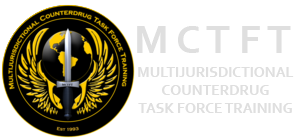We know teenagers are different from adults, and so are their brains. Different parts of the brain mature at different rates. Although adolescence is often characterized by increased independence and a desire for knowledge and exploration, it also is a time when brain changes can result in high-risk behaviors, addiction vulnerability, and mental illness. Learn about the science of the adolescent brain so you can use the knowledge as another way to reach your teen with important prevention messages.
The parent-child relationship is more complex now than it has ever been. Do kids know how to make difficult decisions about life and drugs without consulting their parents? Are underage drinking and drug use simply a “rite of passage”for teens? Do all teens experiment? Why is keeping the partying at home a bad idea? During this encore airing, of Raising Drug Free Kids we’ll answer these questions and more.
Key Concepts:
- See why the teenage brain is not just an adult brain with fewer miles on it
- Learn which tactics work best to keep kids away from drugs
- Find out what has worked for other coalitions and how this may help you
- See how you can help guide your kids to make better decisions
- Find out what resources are out there to help coalitions reach parents
Originally Aired: December 2, 2010
Host & Panelists
Mary Elizabeth Elliott
(Host) Vice President, Communications & Membership, Community Anti-Drug Coalitions of America (CADCA)
Kat Allen
Communities That Care Coalition in Franklin County, Massachusetts
Kat Allen is one of the two Chairs of the Communities That Care Coalition in Franklin County, Massachusetts. She holds a masters degree in public health from Columbia University’s Mailman School of Public Health, specializing in Reproductive, Adolescent, and Child Health. She has spent the past ten years working in the field of adolescent health: she has worked in an alternative sentencing program for adjudicated youth, a peer education program for interpersonal violence prevention, a teen health clinic, a young men’s clinic, school-based health clinics, a clinic for HIV positive youth, and a peer education program in the Dominican Republic. For the past three years Kat has served as the Coordinator of the Community Coalition for Teens, which co-hosts the Communities That Care Coalition. The Communities That Care Coalition was awarded the 2007 Coalition of the Year Award from Community Anti-Drug Coalitions of America (CADCA).
Gwen Schiada, Psy.D
Director, Technical Assistance and Research, Connect With Kids
Dr. Gwen Schiada is a licensed clinical psychologist with more than 15 years experience working with individuals in therapeutic settings and in systemic change roles at the local, state and federal levels. As a senior research analyst for the American Institutes for Research in Washington, D.C., she provided consultation and support to federal grantees implementing violence prevention initiatives. Dr. Schiada has held positions with the U.S.
Department of Education – Safe and Drug Free Schools program and the Safe Schools/ Healthy Students Action Center. Additionally, Dr. Schiada was involved in conducting a large-scale mental health needs assessment for the District of Columbia following the attacks on September 11, 2001. She currently leads the professional development services for CWK Network, is involved in all aspects of research efforts and plays a key role in fostering relationships with government agencies, universities and other organizations that focus on children’s health and wellness issues.
Dr. Wilkie Wilson
Researcher, Duke University
Dr. Wilkie Wilson is a Professor of Prevention Science in the Center for Child and Family Policy at Duke University, a Senior Research Scientist for the Department of Veterans Affairs, and the Director of DukeLEARN at Duke. The mission of DukeLEARN is to be both an international resource to communicate the science of brain function, and a research enterprise that studies how this information can be used effectively to improve the lives of young people and the adults who interact with them. He is a neuropharmacologist who studies the ways in which alcohol and other drugs interact with the central nervous system, with a particular interest in how the brain acquires and stores information. An author of numerous scientific publications, book chapters and books, he has trained more than twenty young scientists and physicians. He is a senior editor of Jasper’s Basic Mechanisms of the Epilepsies, and an author of three books for the general public. Buzzed: The Straight Facts About The Most Used and Abused Drugs From Alcohol to Ecstasy, Pumped: Straight fact for athletes about drugs, supplements and training, and Just Say Know: Talking with kids about drugs and alcohol.

